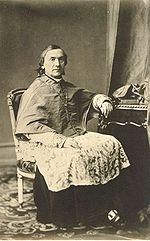How to Pronounce Jean-Théodore Laurent
#50
Most Popular
Boost
Jul 06, 1804 Aachen, North Rhine Westphalia, Germany Died on 20 Feb 1884 (aged 79)
Apostolic vicar
CancerJean Théodore Laurent, Date of Birth, Place of Birth, Family, Facts, Age, Net Worth, Biography and More in FamedBorn.com

Apostolic vicar
Cancer